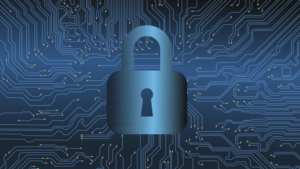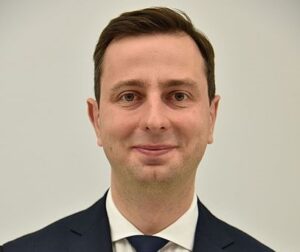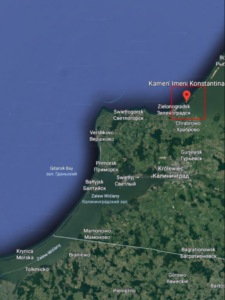‘It is crucial to deepen strategic transatlantic cooperation within the EU and NATO focused on cybersecurity as the current year is pivotal for shaping the European cybersecurity policy.’ This is the key takeaway point of CYBERSEC – Brussels’ Leaders Foresight, a strategic leaders’ debate held on 27 February by the CYBERSEC Forum, a ‘made in Poland’ brand created by the Kosciuszko Institute.
Although the EU-NATO cybersecurity cooperation has gained some momentum, there is still room for complementary action in crisis response, disinformation countermeasures or joint cyber exercises, also for policy-makers at a ministerial level. As Jamie Shea, NATO Deputy Assistant Secretary General for Emerging Security Challenges, said: ‘we need to get rid of the culture of impunity in cyberspace, and develop capabilities in attribution of a cyberattack, which is crucial to counter the culture of impunity.’
The need to view cybersecurity horizontally and multidimensionally, also in the context of the latest technological advancements such as Artificial Intelligence or blockchain, was also emphasised by Krzysztof Szubert, Secretary of State, Polish Ministry of Digital Affairs and the Government Plenipotentiary for Digital Single Market. ‘The challenge is to find the right balance between Pandora’s box and Aladdin’s lamp’, he added. In order to make the most of innovative technologies such as the IoT or Artificial Intelligence, a certain level of cybersecurity assurance has to be achieved and maintained. This is to be provided by the EU Cybersecurity Certification Framework that aims both at enhancing consumers’ trust towards ICT products and services as well as increasing the competitiveness of European companies. The EU cybersecurity certification should also contribute to the completion of the EU Digital Single Market.
CYBERSEC – Brussels’ Leaders Foresight was the first edition of the Kosciuszko Institute’s brainchild project – the CYBERSEC Forum – to be held outside Poland. '2017 was another record-breaking year when it comes to the number of hacking attacks. Therefore, dialogue and cooperation between different stakeholders in the area of cybersecurity are today a priority, just like the responsible commitment of European leaders. Many of the issues cannot only be subject to self-regulation by private actors, but also must be acted on by the public sector. The Brussels edition of the CYBERSEC Forum, held in the heart of the European Union and NATO, is a perfect place to talk about these issues. The conference also aims to give a strong boost to strengthen cybersecurity cooperation between the countries of Central and Eastern Europe, said Izabela Albrycht, Chair of the Kosciuszko Institute.
Among the speakers of the CYBERSEC – Brussels Leaders’ Foresight were: Sir Julian King – European Commissioner for the Security Union, Anna Fotyga – Member of the European Parliament, Mady Delvaux-Stehres – Member of the European Parliament, Eva Maydell – Member of the European Parliament, Sorin Ducaru – former NATO Assistant Secretary General for Emerging Security Challenges, and Diana Kelley – Cybersecurity Field CTO in Microsoft.
During the conference the organisers announced the launch of the CYBERSEC Forum Programme Committee consisting of word-class experts such as Melissa Hathaway (former adviser to U.S. Presidents George W. Bush and Barack Obama), Sorin Ducaru (until recently NATO Assistant Secretary General for Emerging Security Challenges), Udo Helmbrecht (Executive Director of ENISA), Marina Kaljurand (Global Commission on the Stability of Cyberspace and Estonia’s former Minister of Foreign Affairs), Marjete Schaake (Member of the European Parliament), Uri Rosenthal (former Minister of Foreign Affairs of the Netherlands), Christopher Painter (until 2017 Coordinator for Cyber Issues in the U.S. Department of State), Paul Cornish (University of Oxford), Jarno Limnell (Finnish Aalto University), Luigi Rebuffi (European Cyber Security Organisation), Roni Zehavi (CyberSpark), Paul Timmers (former Director at the European Commission), Lea Kaspar (Global Partners Digital), Kim Zetter (freelance journalist specialising in cybersecurity), Wiesław Goździewicz (NATO Joint Force Training Centre), Sean Kanuck (International Institute for Strategic Studies), Alexander Klimburg (Hague Centre for Strategic Studies; Atlantic Council), James Andrew Lewis (Center for Strategic & International Studies), Jean-Christophe Le Toquin (Cybersecurity and Cybercrime Advisors Network), Janis Sarts (NATO Strategic Communications Centre of Excellence), Marek Szczygieł (International Cybersecurity Policy Coordinator, Polish Ministry of Foreign Affairs), Joanna Świątkowska (Programme Director, CYBERSEC Forum), Izabela Albrycht (Chair, the Kosciuszko Institute).
The aim of the event was to discuss the key security challenges of the digital transformation that will dominate the European public debate in 2018. As all previous editions of the CYBERSEC Forum, the conference followed the proven formula of panel discussions grouped into four thematic streams: State, Defence, Business and Future. ‘CYBERSEC – Brussels Leaders’ Foresight’ gathered over 200 participants, including leading representatives of the EU administration, international organisations, expert circles and global IT industry leaders.
Conference Partners: European Cyber Security Organisation (ECSO), Google, Microsoft, PZU Group, Raytheon, SAP, SecOps Europe, Vodafone Group
SAVE THE DATE
4th European Cybersecurity Forum – CYBERSEC will be held on 8-9 October 2018 in Krakow, Poland. The motto of this year’s edition is ‘the Quest for Cyber Trust’.
Read more: https://cybersecforum.eu
CYBERSEC FORUM








